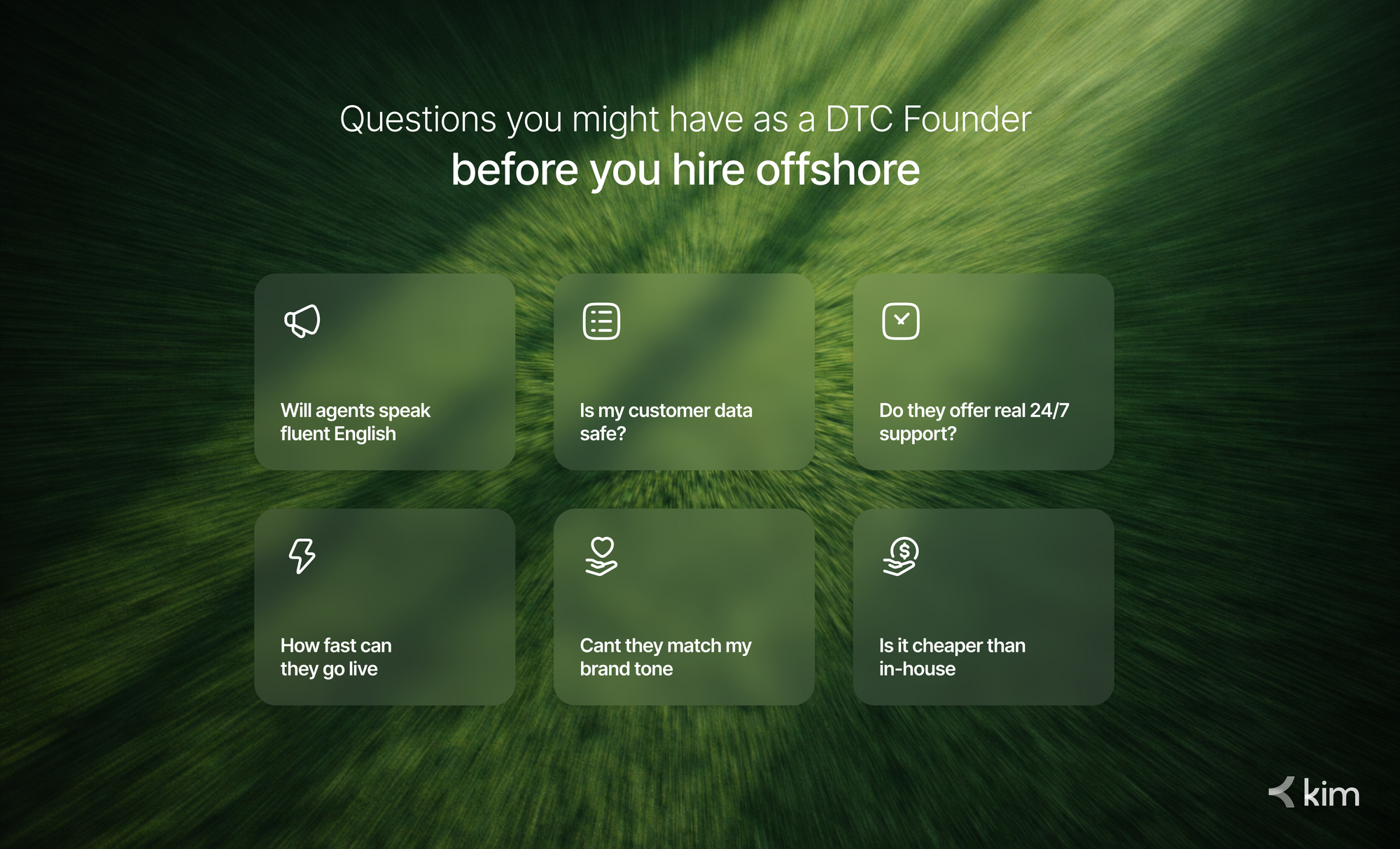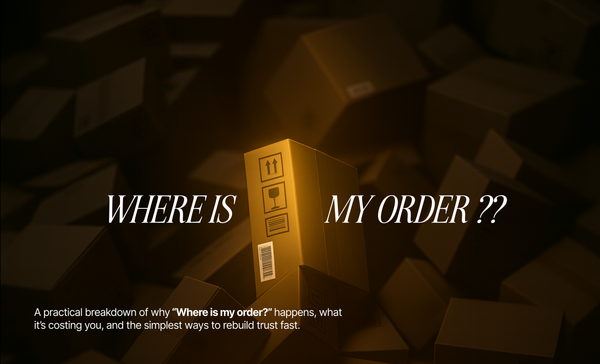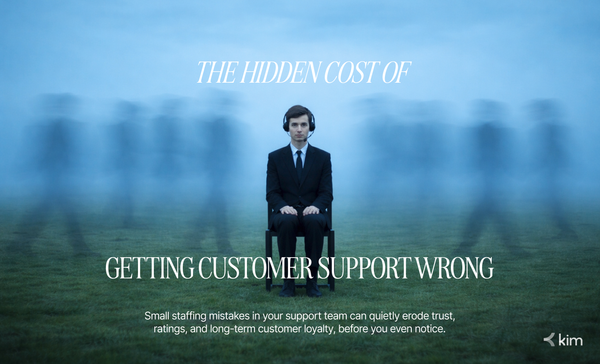Offshore Customer Support: Why DTC Brands Can’t Ignore It

Did you know that 70% of customers will abandon a brand after just one bad support experience? A few years ago, most founders barely thought about customer support. Today, it can make or break your business.
Support is no longer just about resolving post-purchase problems like it used to be back in the day. From answering “Is this safe for sensitive skin?” to handling real-time questions on social media, the way you manage support affects your brand credibility, sales, and customer loyalty.
In this blog, we'll explore the common questions DTC founders ask before hiring and share the best ways to get started.
Common Questions Before Hiring Offshore Support
Most founders and ops leaders have similar concerns when considering offshore customer support.

1. Will They Sound Like Us?
Your brand voice is important. Cheeky, formal, or friendly, you want your offshore agents to speak like your team. Provide training materials, past chats, brand guidelines, and FAQs. A short trial or sample chat can help you see if the tone fits your brand.
2. Can I Trust Them With Sensitive Info?
Your support team sees complaints, refunds, and angry messages. Start with low-risk tasks such as order inquiries. Keep VIP customers or billing in-house until trust is built. Experienced offshore teams have escalation processes to handle tricky situations.
3. Will I Have to Hand-Hold Them 24/7?
Good offshore providers come with standard operating procedures, onboarding guides, and shift managers. Weekly reports can provide insights about recurring issues, common questions, and areas for improvement. Support becomes more than problem-solving; it becomes actionable information for your business.
4. What About Customer Perception?
Most customers care about speed, clarity, and resolution, not location. Frame your offshore team positively. For example, “We have a 24/7 team across India and the Philippines to ensure you never wait long for help.” Quality matters more than geography.
5. Will This Save Money or Cost More?
Affordable support is possible, but going too cheap can backfire. Look for transparency on rates, trial periods, and performance metrics. Compare costs to what you lose when queries go unanswered. Faster responses can increase conversions and sales.
6. How Fast Can We Go Live?
A reliable offshore provider can onboard your team within 48 to 72 hours. Provide product details, access to support platforms, and training materials. Monitor the first week closely and adjust as needed.
Getting Started With Offshore Support
Hiring offshore customer support doesn’t have to be complicated. Think of it as gradually building a team that becomes an extension of your brand. For more on how remote teams can help DTC brands, you can see this blog.
1. Define your support goals
Identify the areas where support is most needed. Are you handling social media queries, post-purchase questions, returns, or all of these? Set priorities and expected response times.
2. Choose a reliable offshore provider
Not all providers are the same. Look for teams with experience in DTC brands or SaaS. Check reviews, request sample chats, and ask about their training programs. A strong provider will have processes, managers, and performance tracking.
3. Train your team on your brand voice
Share your tone guidelines, past chats, FAQs, and response templates. Encourage agents to reply consistently with your style. A trial period is ideal to test alignment.
4. Start small and scale gradually
Begin with low-risk tickets. Once trust and quality are established, expand responsibilities. This approach protects sensitive information and lets you evaluate performance.
5. Set up feedback loops and insights
Ask for weekly summaries of common questions, recurring complaints, and potential improvements. Use this information to optimize your website, product pages, and marketing. Support becomes a growth tool.
6. Go live confidently
With preparation, your offshore team can start within 48–72 hours. Monitor progress, provide feedback, and scale gradually. Document processes from day one for consistency.
FAQs
Q1. Will offshore support hurt my brand reputation?
No, if agents are trained in your tone and processes. Customers care more about speed and problem resolution than location.
Q2. Can I start with just a few queries?
Yes. Start with low-risk tickets and expand as trust grows.
Q3. How much does offshore support cost?
Costs vary. A quality offshore team can save up to 50 percent compared to local hires.
Q4. How fast can I onboard?
With the right provider, onboarding can take 48 to 72 hours.
Conclusion
Customer support is no longer a department. It is part of your growth engine. Done right, offshore customer support saves time, increases conversions, and keeps customers happy.



